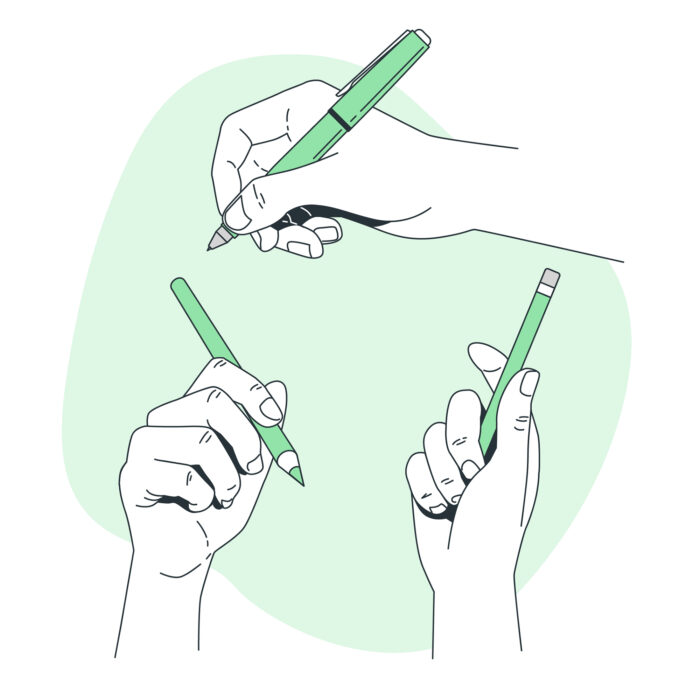Writing an excellent quote for a roundup post or press release is like cooking a meal for a guest.
The dish’s quality, appearance, texture, and taste depend on the quality of ingredients, their ratio, the time spent preparing the meal, and your attitude while cooking.
This explains the problem with many quotes sourced from Q&A platforms. They lack flavor and are filled with unnecessary fluff and bragging rights, failing to provide unique insights for readers to consume.
To help experts write quotes that get published, we sought advice from experienced PR professionals and marketers whose quotes have been published in many outlets. Here’s what we learned:
- Begin With a Hook Phrase
- Share an Example
- Get Straight to The Point
- Provide Unique Insight
- Don’t Be Promotional
- Be Timely
- Take a Stand
- Don’t Plagiarize
1. Begin With a Hook Phrase
It’s not uncommon to receive hundreds of quotes to a posed question on a Q&A platform. With so many quotes to go through, journalists do not have the time to read each quote word for word.
To stand out and increase the chances of your quote being selected, start with a captivating hook.
“Just like creating soundbites that TV producers will find irresistible, writing a quote requires many of the same elements,” says Contento’s Roland Alonzi.
“I like to begin with a “hook phrase.” This is something that will draw an editor in before you even get to your main message. Then you can state the main message and a supporting point, which could be a data point”.
Here’s an example:
Hook: It’s not an easy topic for parents to bring up with their children, but
Message: it is more important than ever to discuss mental health, even with children of a younger age.
Supporting Point: Most parents would be surprised to learn that 83 percent of suicides could have been prevented by talking openly about self-care with their children as young as eight.
Put them all together, and you get:
“It’s not an easy topic for parents to bring up with their children, but it is more important than ever to discuss mental health, even with children of a younger age. Most parents would be surprised to learn that 83 percent of suicides could have been prevented by talking openly about self-care with their children as young as eight.”
2. Share an Example
When crafting your quote, share what you or your team did to tackle the problem. Focus on the one thing that had the most impact.
Share a practical (original) example to reinforce your tip/advice/insight.
Ann Keil Dux of NewStar Media agrees it is important to “weave an authentic story with nuggets of powerful facts.”
“Stories draw us in. That’s how we learned as children. The best marketing-communications leadership understands this and builds their strategy around these powerful stories that resonate. While some readers may be satisfied with seeing just numbers and facts, others may want to hear your personal experience. You must speak to both groups and everyone in between.”
For Haley Slade of Slade Copy House, “The best way to get your quote accepted is to offer specific examples, data, or anecdotes that support your viewpoint”.
Slade believes “journalists are more likely to quote you if your contributions enrich the article and provide depth and prove that you have this experience, know what you’re talking about, and/or know what you’re saying works.”
3. Get Straight to The Point
Do not join the bandwagon of contributors that say a bit of everything but nothing in-depth and rewrite the question asked in 3 ways before proceeding to give your answer.
Ana Reisdorf of Reisdorf Writing Service says you should, “Avoid jargon and keep your quote as brief as possible while still communicating your point effectively. Journalists often prefer concise, clear quotes that are easy for their readers to understand.”
“Answer the question being asked as simply, but as thoroughly as possible. At RWS, we are frequently asked for quotes about complex health-related topics and it isn’t useful to get into the weeds when a reporter just wants a “sound bite” type of quote without all the scientific jargon or extensive explanation.”
Amore Philip of Apples & Oranges Public Relations’ has seen tremendous success in her submitted quotes, “what makes my quotes successful is that I answer only the question that is asked. I keep the quote short, sweet, and succinct. I make it informative, and beneficial to the reader. And most importantly, I leave them wanting to know more. I sometimes get creative and end with a cliffhanger”.
4. Provide Unique Insight
Remember that writers seek expert quotes for valuable insights and experiences that only experts can provide.
To increase the chances of your quote being published, GreenPal’s Bryan Clayton says you should “offer a perspective or information that isn’t commonly known or has been repeated often. This can make your quote stand out”.
“Journalists are looking for responses that add value to their stories, so the more relevant your quote is, the better.”
5. Don’t be Promotional
It’s irrelevant to readers the number of awards you’ve won or all the companies you’ve worked for.
Being asked to contribute to an article is not an invitation to brag. Your readers what to hear your thoughts on the topic based on your lived experience. Do away with the unnecessary self-promotions.
When you share something of value, people will naturally click on your website or social profile to learn about who you are and what you do.
Cassaundra Kalba’s Society22 PR agrees “Journalists are looking for expert advice that is meaningful for their audience, not to advertise you or your company. Do not twist their pending story into a topic that is more relevant to your brand”.
6. Be Timely
“A journalist may have a deadline that is a week out, but they more than likely will begin writing their article as soon as they have commentary that fits their narrative. Prioritize these opportunities in your daily workflow”, says Cassaundra Kalba.
7. Take a Stand
Amy Roberts of KNB Communications says, “Be decisive about where you stand and what you believe in. No one should ever finish reading an article and wonder what you think.”
It’s easy to achieve this when you:
i) Share ONE tip/advice/insight. Not two or three
ii) Focus squarely on that ONE tip/advice/insight. Break it down so well that the reader wouldn’t have to read your quote twice to understand your point.
iii) Only add stats if you can back it up with a verifiable source
8. Don’t Plagiarize
Generative AI has recently taken the world by storm. Before the AI craze, we had to deal with “experts” that lift word-for-word sentences from Google. Now, they outsource their thinking to ChatGPT, copying and pasting whatever it churns out.
If you have to copy verbatim a tip/advice from Google or ChatGPT, then you definitely shouldn’t be responding to that query.
It’s okay to draw inspiration from others and pull data from other sources to back your points. But don’t plagiarize.
Readers want to hear your point of view, and your experience/knowledge about the subject matter, not someone else’s.
Wrap Up
When you’re asked to submit a quote for an article, it’s because the writer wants to make the article richer and more relevant.
Don’t try to sound clever, rather be clear. Your quote needs to give the reader the mic drop effect.
Bookmark this article as a reminder of the most important things to keep in mind when crafting a quote for an article or a media release.

